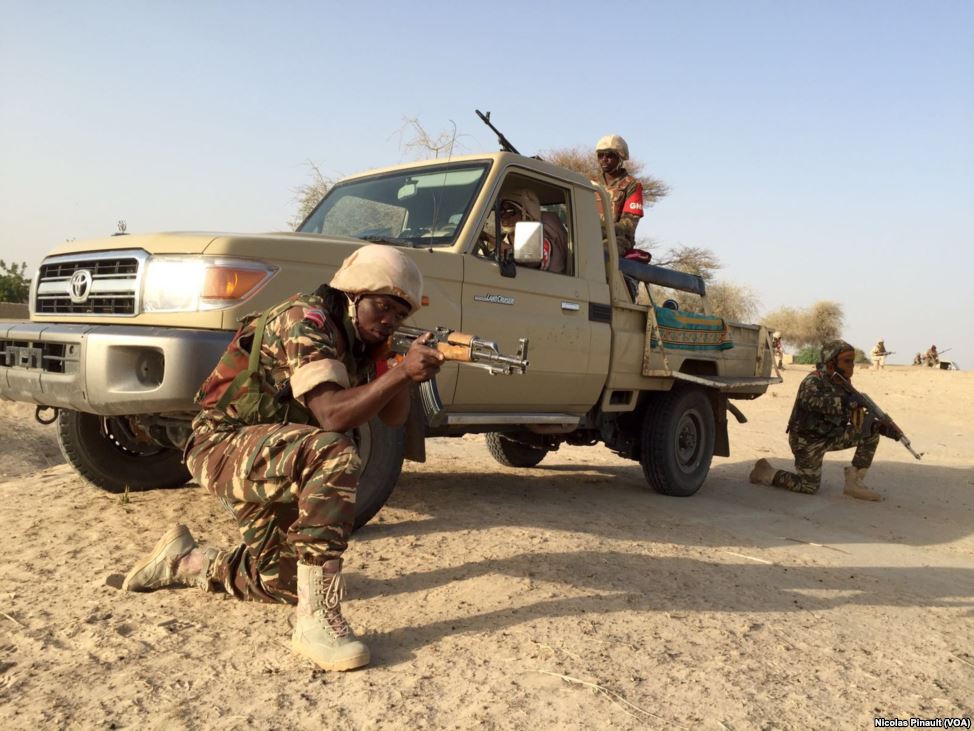
Pandemics, Security, and Terrorism in Nigeria
In the US, Western Europe, and the rest of the developed world, the threat COVID-19 poses has been a shuttered economy, overloaded health care, and higher numbers of casualties.
However, when you look at the developing world, the threat COVID-19 poses is a much deeper issue. A perfect example of the depth of the COVID-19 threat is Africa’s largest economy: Nigeria.
The Health Situation
According to the Johns Hopkins University’s Coronavirus Research Center, at the time of this writing, Nigeria has only 2,950 confirmed cases and 98 deaths. For comparison, South Africa – the state with the highest numbers in Africa – has 7,572 cases and 148 deaths. In the US, numbers have exceeded 1.2 million cases and have passed 71,000 deaths, while China – where the novel coronavirus originated – has seen more than 83,000 cases and more than 4,600 deaths.
While there is speculation that US and Chinese numbers may be under-reported or under-estimated, the data that has been reported shows that Nigeria, a country with a population of 214 million people, has been relatively spared from the health impacts of COVID-19 thus far.
Economic Situation
One area where Nigeria has not been spared is its economic situation. Globally, states have implemented stay at home orders and have limited travel, which in-turn has caused a major drop in demand for primary commodities— especially oil.
The plummet in global oil demand, best represented by oil prices going negative at the end of April, has had (and will continue to have) a huge impact on Nigeria. Oil accounts for 60% of government revenue and 90% of foreign exchange reserves in Nigeria, so the declining demand (and price of oil) will have major impacts on Nigeria’s revenue stream. To try and stay afloat Nigeria’s federal government has already cut the 2020 budget by $5 billion and approached the IMF for a $7 billion emergency loan.
COVID-19, Oil, and State Security
The massive fall in oil prices will cost Nigeria more than just dollars and could end up costing lives. Nigeria is – and has been for some time – a hot bed for Islamic insurgency. In the Northern state of Borno, Boko Haram – which split in 2015 and saw one faction ally with the Islamic State to form the Islamic State’s West African Province (ISWAP) – has been waging an insurgency since 2009. However, in just under a decade Boko Haram has been responsible for north of 37,500 deaths and 2.5 million displaced people.
Fighting Boko Haram has been one of the cornerstones of Nigerian public policy. In 2013, President Goodluck Jonathan launched a major offensive against the insurgent group and declared a state of emergency in three northern states of Yobe, Borno, and Adamawa. Despite the offensive and overall counterterrorism efforts, Boko Haram has remained an active and very dangerous group in Nigeria.
The outbreak of COVID-19 – while it is devasting the world as a whole – may actually benefit Boko Haram/ISWAP in northern Nigeria.
The Nigerian military is now facing the added pressures of budget cuts and the need to police the response to COVID-19, which will weaken the already thinly stretched military’s efforts to fight jihadist groups like Boko Haram/ISWAP. The difficulty in conducting proper counterterrorism operations is also coming at a time when Boko Haram/ISWAP have launched multiple attacks, the highest profile of which being a day of violence that killed more than 100 Chadian and Nigerian soldiers.
One of the many consequences of the fight against COVID-19 has been a spike in unemployment, which may play into the hands of Boko Haram. In Nigeria, more than 90% of the population works in the informal sector, which means that cities going into lockdown is depriving a giant amount of people the income needed to survive. Massive unemployment – or lack of income – can be a major condition that drives people towards illicit groups like Boko Haram.
Boko Haram has been quick to capitalize on the global pandemic already. The disease – and the budget cuts/increased pressure to police the response – has forced the Nigerian army to withdraw from the more remote, rural outposts. As a result, militants have begun developing state structures – such as tax collection, agriculture subsidies, and introducing their own form of Sharia justice.
Conclusion
In developing states like Nigeria, the consequences of COVID-19 have been, and will continue to be, much deeper than in developed states. On top of already weak healthcare systems (that would severely limit many African states abilities to combat a more widespread coronavirus breakout, should it occur), many resource-dependent states are staring down the barrel of billions in lost revenue, but with the added pressure of unrest benefitting illicit organizations.
Bulama Bukarti, a human-rights lawyer and conflict development analyst, described the situation in Nigeria by saying “Nigeria has never seen anything like this before. There is a multiplier effect to all these crises; pandemic, oil shock, an existing conflict and a humanitarian crisis.” Should the impacts of COVID-19 allow Boko Haram/ISWAP to make serious gains, Western Africa could be in for a much more difficult recovery than elsewhere.





